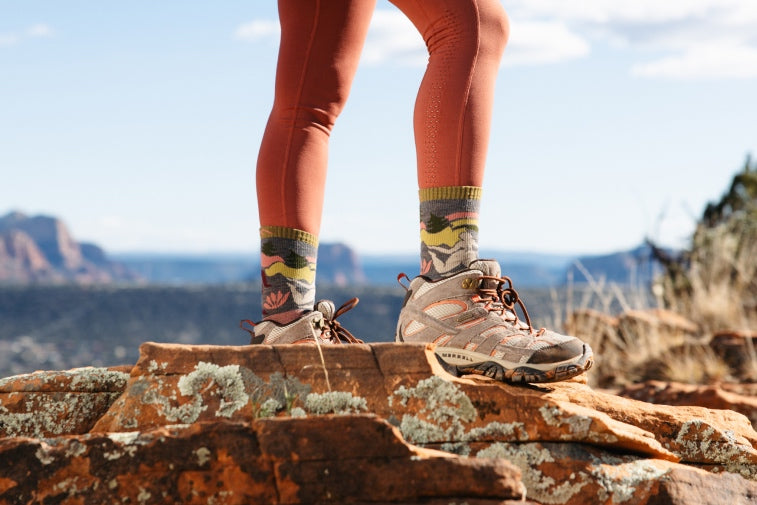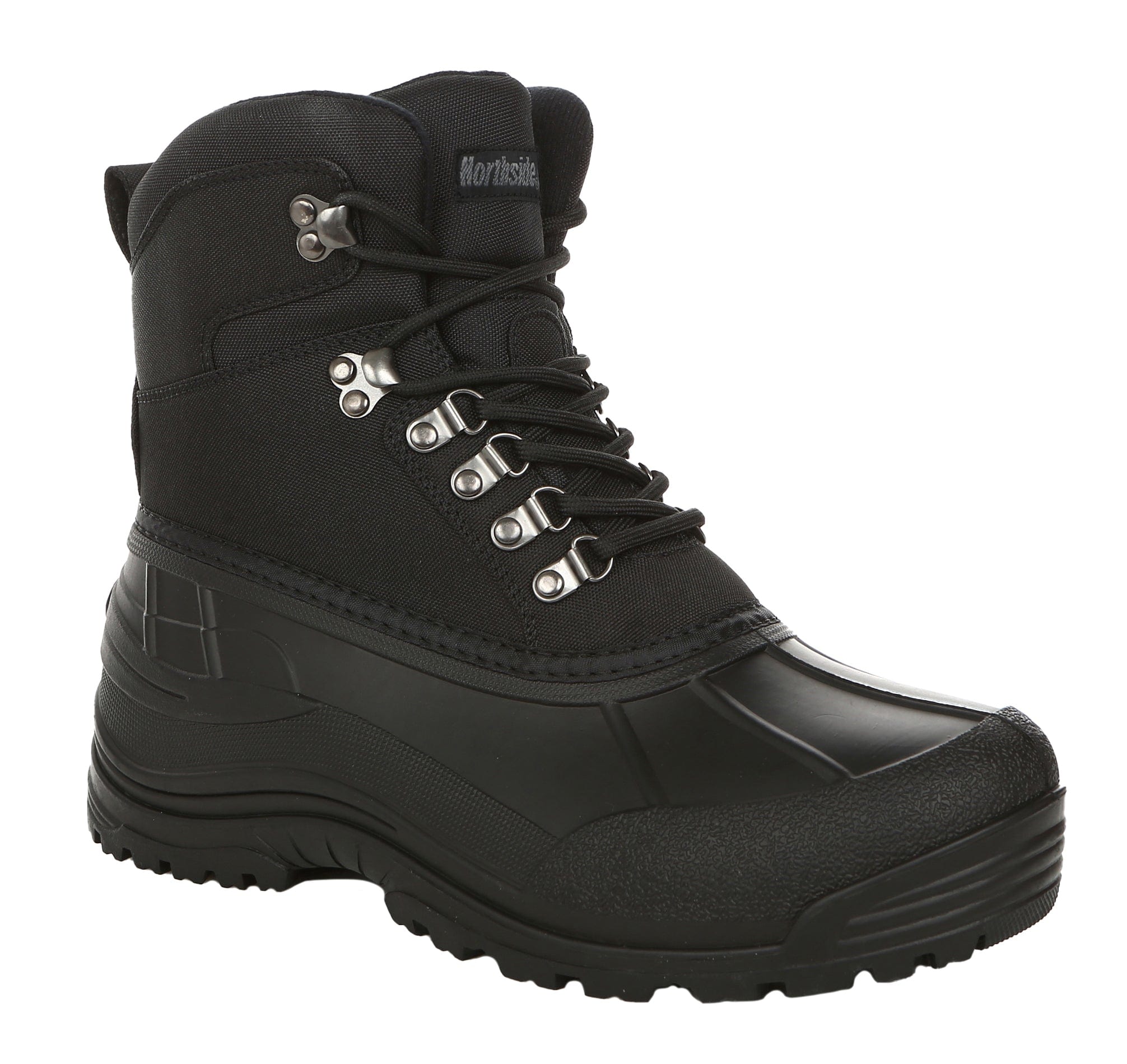They aren’t necessary for dry, arid environments. For wet conditions you will need Waterproof Hiking Shoes to keep feet dry and comfortable.
Hiking enthusiasts often ponder the necessity of waterproof footwear. Trekking through nature brings unpredictable weather and terrain, making waterproof shoes a key factor for those who encounter streams, puddles, and damp trails. Waterproofing not only prevents soggy feet but also combats blisters and chafing caused by moisture.
On the flip side, in hot and dry conditions, non-waterproof, breathable shoes can be more beneficial for moisture-wicking and cooling. Knowing the climate and terrain of your hiking destination is crucial for choosing the appropriate footwear. Keeping your feet dry and comfortable allows for an uninterrupted hiking adventure and heightens your enjoyment of the great outdoors.

Credit: www.amazon.com
Do I Need Waterproof Hiking Shoes? The Importance Of Proper Footwear For Hiking
Hiking demands durable, comfortable, and reliable footwear. Proper hiking shoes protect against injuries. They provide support on varied terrains. A well-chosen pair ensures a safer and more enjoyable hike.
Waterproof Hiking Shoes Pros and ConsSelecting the right footwear for hiking is crucial, and waterproof hiking shoes have become a popular choice for outdoor enthusiasts seeking protection from wet and challenging terrains. While these shoes offer advantages, they also come with their own set of drawbacks. In this exploration of waterproof hiking shoes, we’ll delve into the pros and cons to help you make an informed decision for your next hiking adventure. Pros:
Cons:
|
Key Factors To Consider When Choosing Hiking Shoes
- Traction: Good grip prevents slips on rocky trails.
- Stability: Adequate ankle support is crucial for uneven paths.
- Fit: Snug shoes reduce blisters. Allow room for toe movement.
- Durability: Quality materials withstand rough conditions.
- Breathability: Ventilation is essential to manage moisture.
- Waterproofing: Dry feet stay warm and reduce infection risks.
Role Of Weather In Selecting Hiking Gear
Weather shapes your hiking experience. Gear choices must adapt accordingly. Let’s explore the role weather plays in selecting hiking footwear.
| Weather Condition | Footwear Choice |
|---|---|
| Dry and Warm: | Lightweight, breathable shoes are ideal. |
| Wet and Rainy: | Waterproof boots help keep feet dry. |
| Cold and Snowy: | Insulated, waterproof footwear is a must. |
Waterproof vs. non-waterproof Hiking Shoes
Choosing the right type of footwear is essential for any hike. Waterproof and non-waterproof hiking shoes offer different benefits. Your choice depends on the terrain and weather conditions you’ll encounter. Let’s dive into the advantages and drawbacks of each to help you make an informed decision.
Pros And Cons Of Waterproof Shoes
Waterproof hiking shoes promise to keep your feet dry in wet conditions. They are ideal for rainy weather and crossing streams. Consider the pros and cons:
| Pros of Waterproof Shoes | Cons of Waterproof Shoes |
|---|---|
| Keeps feet dry in wet conditions | Less breathability leading to sweaty feet |
| Better for cold weather | Can take longer to dry once wet inside |
| Often more durable | Heavier than non-waterproof options |
When Non-waterproof Footwear Might Be A Better Option
Sunny days and well-maintained trails make non-waterproof footwear attractive. They are light on your feet and offer more breathability. Here’s why you might consider them:
- Superior comfort in dry conditions
- Greater breathability prevents foot perspiration
- Quicker drying time if they get wet
- Usually lighter, reducing foot fatigue
Critical Elements Of Waterproof Footwear
Embarking on a hiking adventure? The success of your journey can deeply depend on the gear you choose, especially your footwear. Hiking shoes that shield against water are not just a luxury; they’re a must-have for many trails. Let’s dive into the critical elements of waterproof footwear, ensuring dry and comfortable feet from start to finish.
Materials Used In Waterproof Hiking Shoes
Waterproof hiking boots combine various materials to keep feet dry:
- Gore-Tex®: A popular, breathable fabric that stops water from entering.
- Leather: Often used for its natural water-resistant properties.
- Rubber: Common in soles for a tight seal against moisture.
- Synthetics: Such as nylon and polyester, are often found in modern designs.
The best waterproof shoes use a combination of materials. They ensure long-lasting protection and comfort.
Maintenance And Longevity Of Waterproof Shoes
Proper care will extend the life of your waterproof shoes:
- Clean regularly to remove dirt and grime.
- Use manufacturer-approved products for maintenance.
- Reapply waterproof treatments when necessary.
- Air dry naturally; avoid direct heat sources.
With ongoing care, your waterproof footwear can remain a trusted companion for countless hikes.

Credit: darntough.com
Assessing Your Hiking Needs
Deciding on whether you need waterproof hiking shoes starts with understanding your hiking profile.
Analyzing Terrain And Climate
The type of terrain and weather conditions are crucial in choosing your footwear.
- Rocky trails demand durable soles.
- Wet climates require water resistance.
- Muddy paths often call for added traction.
Let’s consider a scenario: hiking in a rainforest. Moisture protection becomes a priority.
Personal Comfort And Fit Preferences
Hiking comfort is non-negotiable. Personal preferences guide the selection.
- Always prioritize a snug fit.
- Seek ample cushioning for long treks.
- Test shoes on similar surfaces indoors.
A table highlights the relationship between comfort features and hiking needs:
| Feature | Benefit | Trail Type |
|---|---|---|
| Waterproofing | Dry feet in wet conditions | Streams, rainforests, snow |
| Breathability | Less moisture from sweat | Hot, dry landscapes |
| High-ankle support | Stability on uneven ground | Rocky, rugged terrain |
Remember, well-fitting shoes prevent blisters and discomfort.
Real-world Experiences With Waterproof Hiking Shoes
Choosing the right footwear for hiking can transform your outdoor adventures. In erratic weather or across moist trails, waterproof hiking shoes become essential gear. Read on to dive into real-life accounts and research on waterproof shoe performance to inform your choice.
Testimonials From Seasoned Hikers
Listen to the pros who’ve tread every path:
- “Crossing streams without soggy feet is a game changer” – Jane, Trail Leader for 10 years.
- “My waterproof boots lasted 500 miles” – Mike, AT Hiker.
- “A dry hike is a happy hike” – Emma, Nature Guide.
Comparative Field Studies On Shoe Performance
Objective data amplifies hiker reviews. Several field studies suggest that:
| Feature | Effectiveness | Durability |
|---|---|---|
| Waterproof Membrane | Keeps feet dry in 90% of wet conditions | Good for up to 1 year of frequent use |
| Breathability | Reduces sweat and blisters | Varies by brand and material |
| Overall Comfort | Rated high, especially on long treks | Dependent on proper care and usage |
Note: Individual experiences may vary, making personal testing important.

Credit: thesportsedit.com
Frequently Asked Questions Of Do I Need Waterproof Hiking Shoes
Is It Worth To Get Waterproof Hiking Shoes?
Waterproof hiking shoes are worth it for wet conditions, offering dry comfort and preventing blisters. They’re essential for treks in rainy climates or crossing streams.
What Is The Disadvantage Of Waterproof Hiking Boots?
Waterproof hiking boots can reduce breathability, causing feet to sweat and retain moisture during long treks. This can lead to discomfort and blisters.
How Important Are Waterproof Shoes?
Waterproof shoes are essential for outdoor activities to keep feet dry, prevent blisters, and maintain comfort. They’re pivotal in wet conditions, enhancing grip and durability. For regular exposure to rain or water, waterproof footwear is highly beneficial.
Should I Waterproof New Hiking Boots?
Yes, waterproofing new hiking boots is advisable to protect them from water and extend their lifespan. Apply a waterproof treatment before first use for optimal results.
Conclusion
Deciding on waterproof hiking shoes ultimately boils down to trail conditions and personal preference. For wet, unpredictable terrains, they’re indispensable. Dry climates may warrant breathable alternatives. Prioritize fit and function to ensure comfortable, safe treks every time. Embrace each journey with the right footgear for you.

